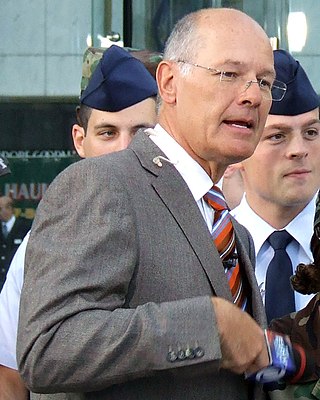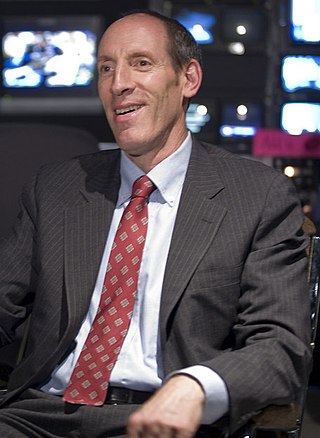
The Rockford Files is an American detective drama television series starring James Garner that aired on the NBC network from September 13, 1974, to January 10, 1980. Garner portrays Los Angeles private investigator Jim Rockford, with Noah Beery Jr. in the supporting role of his father, Joseph "Rocky" Rockford, a retired truck driver. The show was created by Roy Huggins and Stephen J. Cannell. Huggins had created the American western TV show Maverick (1957–1962), which Garner also starred, and he wanted to create a similar show in a modern-day detective setting. In 2002, The Rockford Files was ranked No. 39 on TV Guide's 50 Greatest TV Shows of All Time.

Denver Dell Pyle was an American film and television actor and director. He was well known for a number of TV roles from the 1960s through the 1980s, including his portrayal of Briscoe Darling in several episodes of The Andy Griffith Show, as Jesse Duke in The Dukes of Hazzard from 1979 to 1985, as Mad Jack in the NBC television series The Life and Times of Grizzly Adams, and as the titular character's father, Buck Webb, in CBS's The Doris Day Show. In many of his roles, he portrayed either authority figures, or gruff, demanding father figures, often as comic relief. Perhaps his most memorable film role was that of Texas Ranger Frank Hamer in the movie Bonnie and Clyde (1967), as the lawman who relentlessly chased down and finally killed the notorious duo in an ambush.

Harry Smith is an American retired television journalist who has worked for NBC News, MSNBC, and CNBC as a senior correspondent. He hosted the CBS News morning programs, The Early Show and its predecessor, CBS This Morning, for seventeen years. In July 2011, Smith left CBS News to become a correspondent for NBC News and the newsmagazine Rock Center with Brian Williams. He also served as an anchor for MSNBC, conducting daytime live coverage of breaking news and events since first appearing in November 2015.
KCNC-TV, branded CBS Colorado, is a television station in Denver, Colorado, United States, serving as the market's CBS outlet. It is owned and operated by the network's CBS News and Stations division, and maintains studios on Lincoln Street in downtown Denver; its transmitter is based on Lookout Mountain, near Golden.
Rocky Mountain PBS is a network of PBS member television stations serving the U.S. state of Colorado. Headquartered in Denver, it is operated by Rocky Mountain Public Media, Inc., a non-profit organization which holds the licenses for most of the PBS member stations licensed in the state, with the exception of KBDI-TV in Broomfield, which serves as the Denver market's secondary PBS station through the network's Program Differentiation Plan. The network comprises five full-power stations—flagship station KRMA-TV in Denver and satellites KTSC in Pueblo, KRMJ in Grand Junction, KRMU in Durango and KRMZ in Steamboat Springs. The broadcast signals of the five full-power stations and 60 translators cover almost all of the state, as well as parts of Wyoming, Montana, Nebraska and New Mexico.
KUSA is a television station in Denver, Colorado, United States, affiliated with NBC. It is owned by Tegna Inc. alongside MyNetworkTV affiliate KTVD. The two stations share studios on East Speer Boulevard in Denver's Speer neighborhood; KUSA's transmitter is located atop Lookout Mountain, near Golden. In addition to its main studios, the station also operates a secondary studio and news bureau on Canyon Avenue in Fort Collins.

KTVD is a television station in Denver, Colorado, United States, affiliated with MyNetworkTV. It is owned by Tegna Inc. alongside NBC affiliate KUSA. The two stations share studios on East Speer Boulevard in Denver's Speer neighborhood; KTVD's transmitter is located atop Lookout Mountain.
KDVR is a television station in Denver, Colorado, United States, affiliated with the Fox network. It is simulcast full-time over satellite station KFCT in Fort Collins. Nexstar Media Group owns KDVR and KFCT alongside CW station KWGN-TV. Studios and offices are located on East Speer Boulevard in Denver's Speer neighborhood. KDVR's transmitter is located atop Lookout Mountain, near Golden, while KFCT's transmitter lies atop Horsetooth Mountain just outside Fort Collins, covering Northern Colorado.

Marvin Elliott Miller was an American actor. Possessing a deep baritone voice, he began his career in radio in St. Louis, Missouri before becoming a Hollywood actor. He is remembered for voicing Robby the Robot in the science fiction film Forbidden Planet (1956), a role he reprised in the lesser-known The Invisible Boy (1957).
Montana PBS is the PBS member public television network for the U.S. state of Montana. It is a joint venture between Montana State University (MSU) and the University of Montana (UM). The network is headquartered in the Visual Communications Building on the MSU campus in Bozeman, with a separate studio on the UM campus in Missoula.
Wyoming PBS is the statewide public broadcaster for the U.S. state of Wyoming. A member of PBS, it is owned and operated by Central Wyoming College and originates from its campus in Riverton. Three high-power transmitters—KCWC-DT in Lander, KWYP-DT in Laramie, and KPTW in Casper—and 40 low-power translator stations broadcast the signal across the state.
KBDI-TV, known as PBS12, is a PBS member television station licensed to Broomfield, Colorado, United States, serving the Denver area. The station is owned by Colorado Public Television, Inc. KBDI-TV's studios are located at Welton and 29th Streets in the Five Points neighborhood northeast of downtown Denver; its main transmitter is located atop Mestaa'ėhehe Mountain, and it is rebroadcast by translators throughout the Front Range and eastern Colorado. KBDI-TV serves as Colorado's secondary public television station to Rocky Mountain PBS with an emphasis on local and independent programming.
KRMZ, virtual channel 24, is a Public Broadcasting Service (PBS) member television station licensed to Steamboat Springs, Colorado, United States. Owned by Rocky Mountain Public Media, Inc., it is one of the five full-service transmitters of the Rocky Mountain PBS state network, broadcasting from atop Quarry Mountain west of town. Master control and internal operations are based at Rocky Mountain PBS' headquarters in the Buell Public Media Center in downtown Denver.

Aaron Harber is an American long-form political TV talk show host featured on KCDO-TV Channel 3 Colorado, COMCAST Entertainment Television, and KPXC-TV, as well as on individual stations. Harber often writes columns for The Colorado Statesman, The Denver Daily News and the Huffington Post, and has served as an on-air, political analyst for the Denver CBS affiliate, CBS4 (KCNC-TV), the CW2 Network, Tribune Broadcasting, and KBDI-TV Channel 12.
KTSC is a television station on channel 8 in Pueblo, Colorado, United States. Owned by Rocky Mountain Public Media, Inc., it is one of the five full-service transmitters of the Rocky Mountain PBS state network, broadcasting from atop Cheyenne Mountain between Pueblo and Colorado Springs. Master control and internal operations are based at Rocky Mountain PBS' headquarters in the Buell Public Media Center in downtown Denver; some regional programming is produced at the Buell Communications Center on the campus of Colorado State University Pueblo. RMPBS also maintains a Regional Innovation Center in Colorado Springs on the campus of Colorado College.
Leon "Stormy" Rottman was an American weather forecaster and television host. After his experience with reporting weather conditions for the U.S. Air Force during World War II and the Korean War, Rottman began a civilian career as a weather presenter on both television and radio. He was the primary evening weatherman for many years at Channel 9 in Denver, Colorado.
Arthur Everett Holch, Jr. [pronounced Holtsch] was an American television documentary filmmaker whose works in the early days of television covered controversial topics relating to race relations and political issues in the United States. Holch earned an Emmy Award for a 1991 documentary broadcast on HBO documenting the life of a German man who had been a member of the Hitler Youth and then turned against the Nazis.
Max Edward Morath was an American ragtime pianist, composer, actor, and author. He was best known for his piano playing and is referred to as "Mr. Ragtime". He was a touring performer as well as being variously a composer, recording artist, actor, playwright, and radio and television presenter. Rudi Blesh billed Morath as a "one-man ragtime army".
Reynelda Muse is a former American television news anchor. In 1969 she became the first woman and first African American television news anchor in Colorado, co-anchoring a newscast at KOA-TV in Denver. In 1980 she was part of the first group of anchors on CNN. She is the winner of many awards, including an Emmy Award, and has been inducted into numerous halls of fame. The Reynelda Muse Television Journalism Scholarship, annually awarded to an African American student majoring in television journalism, was established in her honor by the Colorado Association of Black Journalists.
KSPR-TV, VHF analog channel 6, was a CBS-affiliated television station in Casper, Wyoming, United States, between 1957 and 1959. The station was owned by radio station KSPR. The station closed as a result of competition from a local cable system; it would be more than 20 years before a second commercial station opened in Casper.





